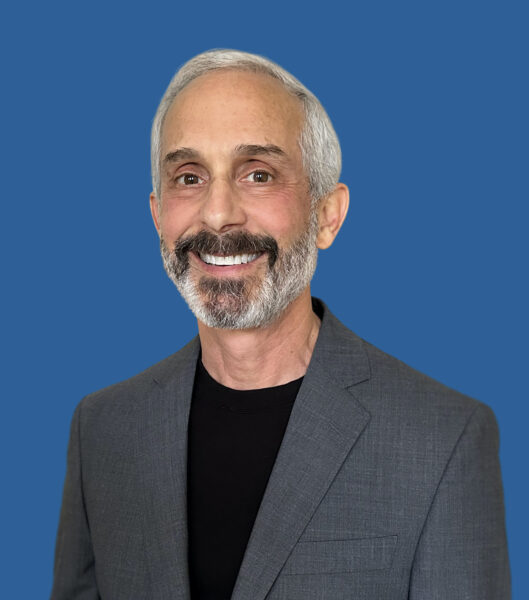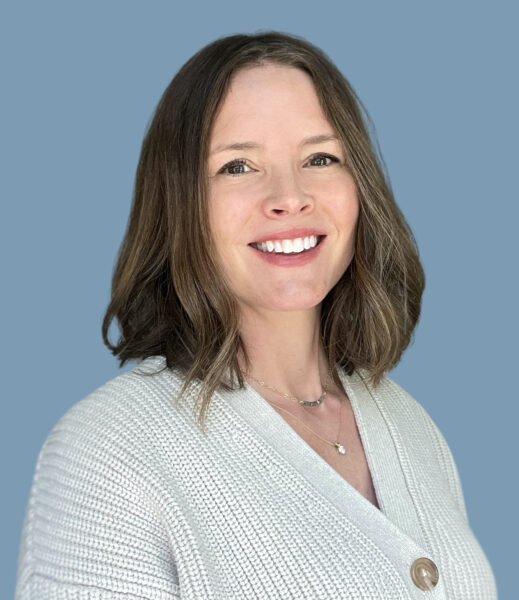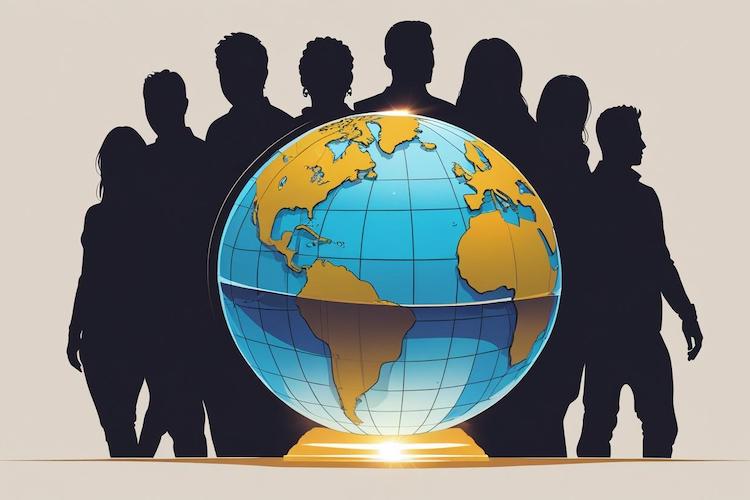“We are here to work with your leaders, to help advance your organizational outcomes, to help make people better in all aspects of life,” says Sarah Nabors, chief marketing officer of the Center for Creative Leadership. “Our work with clients helps them build leadership capability and capacity throughout their organization. And our work is always focused on people first and the power of what people can do together.”
CCL’s belief in and commitment to bringing out the life-changing potential in every leader at every organization is underscored by its mission: to advance the understanding, practice and development of leadership for the benefit of society worldwide. It’s a charge that CCL has been working toward for more than 50 years, fueled by curiosity and research, and continues to pursue today.
And while they work across sectors and across the globe, their focus is honed tightly on leadership development — at the individual, team, enterprise and even societal levels — which differentiates CCL from many others in the space who offer a broad range of products, services and thought leadership.
“We believe and know that leaders and leadership development are key to transforming individuals, organizations and countries,” says CCL Executive Advisor David Altman. “It’s a catalyst for change.”
Far-reaching impact
Headquartered in Greensboro, N.C., CCL has about 650 full-time employees and about 600 adjunct coaches and facilitators globally. And while the aim of reaching people worldwide is a huge lift — “We’re trying to reach as many of the 8 billion people on the planet as possible, so there’s a little gap there, between who we are and what our mission compels us to do,” Altman says — it’s one that CCL is constantly making strides toward. The organization has provided leadership development in 100 countries, delivers content in more than 50 languages and has worked with two-thirds of the Fortune 1000.
Broadly speaking, CCL offers open enrollment programs for individuals, custom program development for organizations and enterprises, coaching and enterprise licensing. Everything is research-based, customizable and scalable.
“Open enrollment programs for individual leader development are structured at different leader levels, and people can attend at any of our campuses or virtually,” Nabors says. “We also do custom program development, where we work with enterprises of all types, sizes and sectors to shape leadership programs. We meet them where they are, bringing our body of work to their organizational challenges and crafting programs that will help them meet and deliver on their outcomes.”
“An increasingly important focus for us is enterprise licensing — taking the body of 55 years of work and knowledge about leadership development and packaging it in ways that allow organizations to take that content and deliver it in a variety of modalities across all levels of their organization,” Nabors says.
CCL’s mission has remained the same since the organization’s founding. But a lot has changed since 1970.
From simple salve to global footprint
CCL’s story traces back to perhaps unexpected beginnings — it all started with Vicks VapoRub.
In 1894, Lundsford Richardson, a pharmacist in Greensboro, developed Vicks VapoRub to relieve common cold symptoms. During the early 1900s, his son, H. Smith Richardson, began spreading the Vicks business throughout the U.S. and, by 1929, overseas. During the Great Depression, Richardson noticed that the business continued to thrive and prosper while other organizations struggled and declared that great leadership was the key to maintaining success. This sparked Richardson’s passion for leadership and how to foster it in people and organizations.
In 1935, H. Smith Richardson and Grace Jones Richardson set up the Smith Richardson Foundation, concentrating efforts on the study of creativity and leadership. As the foundation grew, the Richardson family decided these efforts should be research-based and not-for-profit. It was with these principles and funding from the foundation that CCL was established in 1970 as a 501c3 in the woods of Greensboro.

“It was a think tank,” Altman says. “They hired 10 psychologists out of the T-group movement, and they said, ‘Go study creative leadership and cross-country thinking, and come back to us and tell us what you learned.’”
It was through these early studies, which evolved into onsite interventions, evaluations and more, that CCL pioneered a new field of research for the time — leadership development. This all took place in CCL’s first modest offices in Greensboro, which over time were expanded to include innovative features such as seminar rooms, sensory evaluation facilities and spaces where leadership simulations could be enacted.
“We invented all different tools and psychometrically sound assessments, including 360 assessments, and we basically normalized the concept that leaders are made, not born,” Altman says. “In the 1970s that was a radical concept.”
CCL has hit many milestones since then, including the launch of its flagship Leadership Development Program in 1974, which is now the longest-running program of its kind in the world. In 1978, CCL developed The Looking Glass Experience, a groundbreaking simulation that mimics the uncertain, ambiguous environment that leaders face in the real world. This simulation is still used today in CCL’s program Leading for Organizational Impact.
During the years and decades that followed, CCL expanded and accelerated the mainstream use of 360-degree assessments by making them an integrated part of their leadership development programs and established an extensive research database with the largest pool of typical working adults ever psychologically assessed. They launched “Leadership Across Differences,” a global research initiative addressing effective leadership processes in the face of racial, religious, gender, ethnic and cultural differences, and published a number of research-based publications, one of which became the basis of the popular Boundary Spanning Leadership work. This built upon earlier global research that produced the experience-driven 70-20-10 framework for leader development.
Today, CCL stands on its own, no longer reliant on financial support from the Smith Richardson Foundation. They work with a wide mix of organizations, from multi-billion-dollar Fortune 500 companies to public health and other nonprofit/NGO organizations, K-12 education and universities, and more.
CCL’s global footprint has expanded over the years, as well. With offices in the U.S., Europe, the Middle East, India, China and APAC, they place an emphasis on the importance of leadership from all corners of the globe, giving the organization the ability to serve clients across cultures, time zones, languages and leader levels.
CCL continues to be a pioneer in the industry and remains a thought leader in the ever-evolving leadership landscape, more recently placing a focus on research surrounding polycrisis, organizational disruption and artificial intelligence. With more than 600,000 followers on LinkedIn and 2 million visitors to their website each year, they have established a substantial reach to leaders at all levels around the world.
“Throughout our history, we’ve consistently shared our insights to make leadership more accessible,” Nabors says. “Our research is available through open-access publications, and we openly share our evaluation methods, frameworks and leadership development philosophy. It’s one way we deliver on our mission.”
Context is key
Lessons from CCL’s years of experience and research set their work apart. But context is key.
“We come into all of our client engagements with the mindset that it’s an honor to be able to work with you, and we’re going to put everything we can into developing your leaders,” Nabors says. “We’re going to do that while coming from a deep history of both practical experience — working with leaders across industries and sectors and all over the world — and research-based solutions that are going to inform the choices we make.
“A lot of our foundational research and approach to leadership development still rings true — we just have to put it in your context and understand the environment that your leaders are working in and what the current challenges are,” she continues.

Many organizations, including CCL, face the challenge of transformation. According to Nabors, CCL’s transformation aims to keep pace with today’s changing environment and apply local learnings globally and consistently in their leadership development concepts and approaches.
“That’s a process we’re going through, but really it’s a process that we’ve never stopped going through,” Nabors says. “If we’re going to show up and create the leaders of the future and help advance societal outcomes, we have to be constantly seeking to broaden our understanding of the context that these leaders are working in and what they need to be successful. And right now, that means not just thinking about the content, but also the modalities in which we’re able to deliver.”
CCL works hard to ensure their content is accessible in the formats that leaders and organizations prefer. A big focus currently is CCL Passport, their enterprise licensing product, which lets organizations access and distribute CCL’s content in various formats across leader levels to best fit their needs.
“Every engagement we have we view as an opportunity to advance our work, to advance leadership,” Nabors says. “We’re going to learn from one organization and all the employees we have the privilege to develop and work with, and we’re going to bring that back into our work and then take it on to the next one. It’s a constantly evolving landscape that these leaders are working in, so we have to be in constant pursuit of understanding what they need to know to be effective in their organizations.”
A ‘both/and’ organization
CCL is not only focused on the transformation and development of those people and companies it partners with. It greatly prioritizes the culture and relationships among its own team, all of which is underpinned by CCL’s stated values: Be our best, make a difference, stay curious and rise together.
“Our culture is captured in our values, our focus on making a difference, on rising together with a ‘One CCL Mindset,’ as we call it,” Nabors says. “We have a diverse workforce, and I think that is a key part of what brings and makes the magic here for employees in terms of the culture. Our research heritage shapes our culture in a lot of ways, as well, because there’s this constant thinking of: How can we do this differently, or what does this mean?”
Ultimately, though, the people and their passion for the mission are perhaps the biggest driver behind what makes the culture special at CCL.
“People come [to CCL] because of the impactful work we do and the passionate and capable colleagues who deliver it,” Altman says. “And they stay here because of the mission.”
CCL is proud of its human-centered foundation, but, as Altman points out, that is just one piece of the story in what he refers to as a “both/and” organization.
“Human-centered leadership development and business-centered development — those are two sides of the same coin,” Altman says. “You can be empathetic, compassionate, have emotional intelligence, take care of your people and have good listening skills … and … drive accountability and business performance.”
As we hurtle forward through increasingly change-heavy times, CCL stands poised to continue in its mission, driving impact at every level through its services, solutions, thought leadership and passion. The organization’s global expansion is an intentional piece of this mission.
“That’s why we expanded to Brussels,” Nabors says. “That’s why we went to Singapore and India and so on, so we could make sure we were growing and focusing our efforts in the places where we could have the biggest impact long-term.”
“We continually try to find ways to close the gap, to have more impact, to make the world a better place through better leaders and better leadership collectives,” Altman adds.
CCL is a corporate member of BetterWork Media Group, the parent company of Chief Learning Officer. Learn more about CCL by accessing BetterWork Media Group’s Corporate Member Directory.














